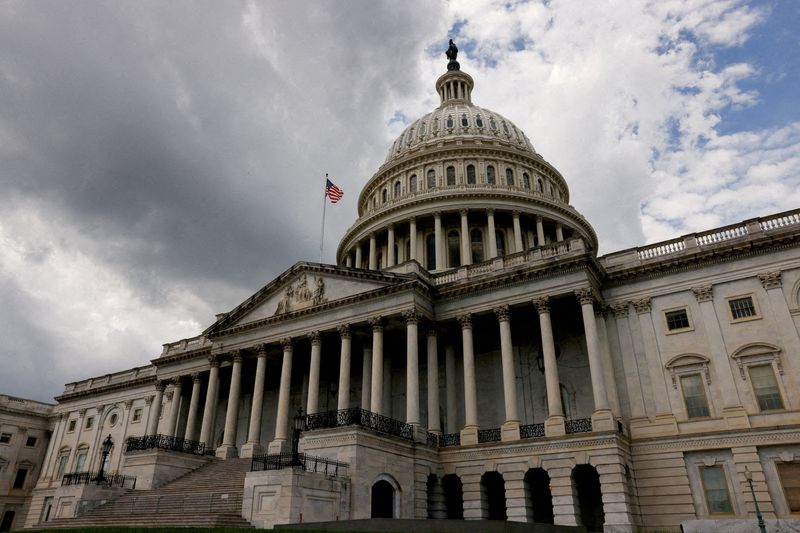WASHINGTON (Reuters) - The U.S. House of Representatives could vote next week on a bipartisan tax package that includes benefits for businesses and families. It has backing from Republicans and Democrats even as Congress is deadlocked over other fiscal issues.
Here are provisions of the tax bill:
CHILD TAX CREDIT
The bill would increase a tax credit for caregivers from $2,000 to $2,100 per child in 2024 and 2025.
It would also increase the amount of that tax credit that is "refundable," or available as a cash payment to those who don't owe taxes.
The refundable portion would rise by $200 to $1,800 per child for the 2023 tax year, $1,900 in 2024 and $2,000 in 2025. An inflation adjustment in 2025 could raise the refundable portion further, to $2,100.
This expansion would expire in 2026.
It would cost $33.5 billion over 10 years, according to the congressional Joint Committee on Taxation.
BUSINESS TAX BREAKS
The bill would allow businesses to deduct research and development costs each year, rather than over a five-year period, as has been required since 2022.
It would allow businesses to deduct the full cost of equipment and other "short-lived" capital investments.
It also would loosen limits on deductions for interest expenses.
These deductions would be in place through the 2025 tax year and retroactively to 2022.
The bill would also eliminate the double taxation of businesses and workers that operate both in the United States and Taiwan.
It would allow small businesses to deduct $1.29 million in qualifying expenses, up from $1.16 million currently.
It also would raise the threshold for reporting subcontracted labor to $1,000, from $600, and index that level to inflation.
These tax breaks would cost $34.3 billion over 10 years.
AFFORDABLE HOUSING
The bill would expand the Low Income Housing Tax Credit, the government's primary tool for encouraging affordable housing development.
Specifically, it would give state housing authorities 12.5% more of these tax credits to allocate to private-sector builders.
The bill would also allow states to finance more of these projects through tax-exempt bonds, which would reduce competition for the limited amount of credits available.
This provision would cost $6.3 billion over 10 years.
DISASTER LOSSES
The bill expands tax breaks for losses from hurricanes, wildfires and other disasters that took place after 2019, including the February 2023 train derailment in East Palestine, Ohio.
It would cost $5 billion over 10 years.
COVID EMPLOYER CREDITS
The bill would scale back a COVID-era tax credit that encouraged businesses to keep employees on their payrolls. Businesses would have to file amended returns to claim the credit before Jan. 31, 2024, rather than April 15, 2025.

It also would increase the penalties for fraud.
This would save $78.6 billion over 10 years.